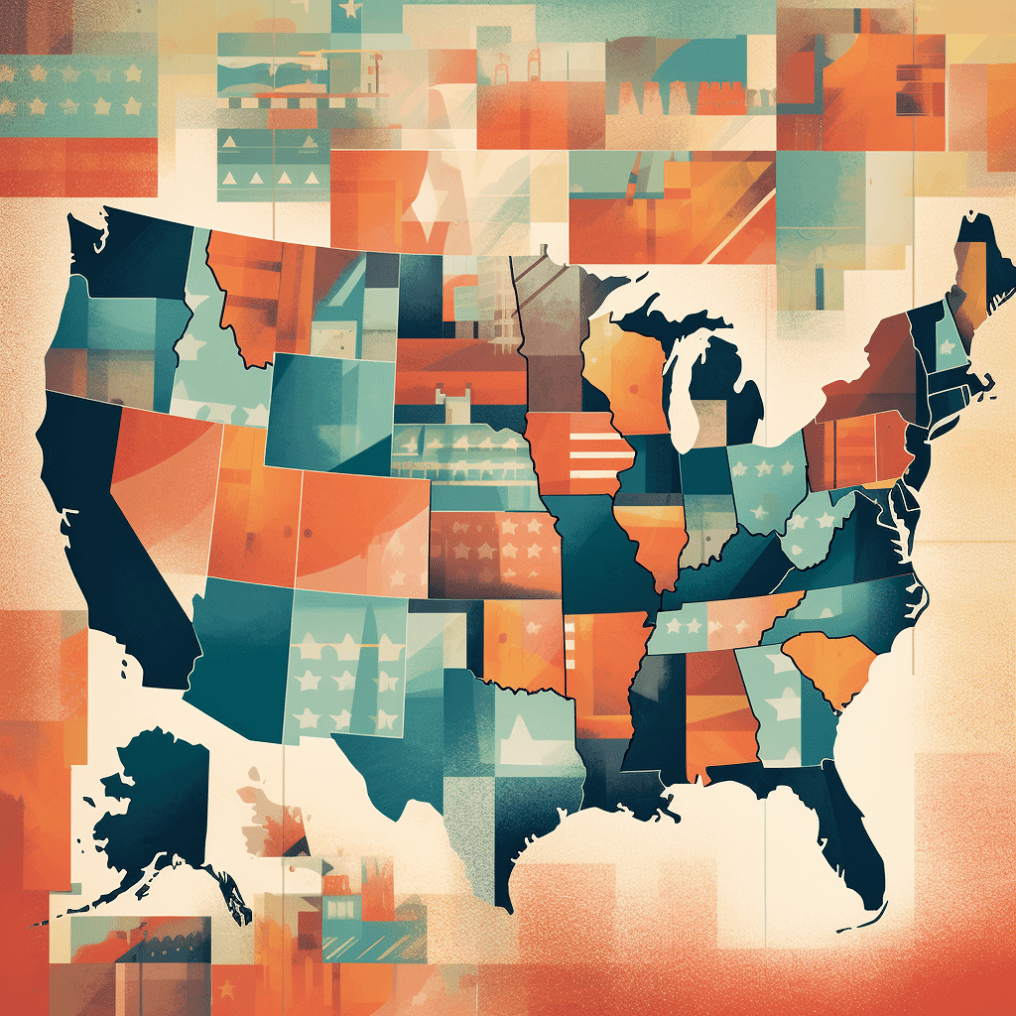
What Is The Electoral College And How Does It Work?
The Electoral College is an integral part of the presidential election process in the United States, yet many people don't fully understand how it works or why it is necessary. This blog post will explain the basics of the College, its role in American politics, and the criticisms that have been raised against it.
What is the Electoral College?
The big question to ask is who are the electors in the electoral college. A collection of persons make up the Electoral College who are appointed by each state in the United States to cast votes for their state's president and vice president candidates.
The number of electors assigned to each state is determined by the number of members in the state's congressional delegation (the US House of Representatives and Senate). Each state has two senators, plus one elector for each member of the House of Representatives. This means that the total number of electors is 538, with 270 electoral votes required to win the presidency.
How Does the Electoral College Work?
The College is an important part of the US Presidential Elections process, and it is important to understand how it works and its role in American politics and political affiliation. They are great benefits of the electoral college. The College process begins with the presidential candidates campaigning in various states and territories. Each state then holds its own election to determine how many electors will vote for each candidate.
The number of electors assigned to each state is determined by the number of members in the state's congressional delegation (the US House of Representatives and Senate). Each state has two senators, plus one elector for each member of the House of Representatives. This means that the total number of electors is 538, with 270 electoral votes required to win the presidency in the US Presidential Elections.
Once the electoral votes are cast, the electoral votes are counted in a joint session of Congress and the candidate who receives 270 or more electoral votes is declared the winner of the election. This process is outlined in the US Constitution and is designed to ensure that the President is chosen by a majority in the US Presidential Elections of the American people.
The "winner-takes-all" system is also an important aspect of the College. The political analysis of this system shows that assigns all of the state's electoral votes to the Presidential Candidates who receive the most popular votes in the state. This means that if a candidate wins the popular vote in a state, they will receive all of that state's electoral votes, regardless of the margin of victory.
This Federalism system has been argued to be unfair, as it gives an advantage to candidates who focus their efforts on certain states. These states are referred to as "swing states," because their electoral votes could swing the election in favor of either candidate. This means that presidential campaigns often focus their efforts on these states, while ignoring those with fewer President and vice president electoral votes.
The College is also important to democracy because it provides a balancing mechanism between the popular vote and the interests of individual states. This is because each state has the same number of electoral votes regardless of its population. This ensures that the President is chosen by a majority of the American people and that the interests of individual states are taken into consideration.
Criticisms of the Electoral College
The College has been the subject of much criticism of democracy over the years, particularly from those who argue that it is undemocratic and favors certain states over others. This does not truly define the electoral college. Critics of the College argue that it fails to provide an accurate representation of the will of the people, as the candidate who wins the popular vote does not necessarily become President which affects Presidential Term. This was most recently seen in the 2016 presidential election, when Donald Trump won the College despite losing the popular vote to Hillary Clinton.
Critics of the College also have pointed out to State Legislatures that it favors certain states over others. This is due to the winner-takes-all system, whereby the candidate who wins the vote in a state receives all of its electoral votes. This means that some states are more important than others in deciding the outcome of the election. These “swing states” are heavily targeted by presidential campaigns, as they have the potential to sway the election in favor of either candidate. This has been argued to be an unfair advantage for the candidates who are able to target these swing states.
The College has also been criticized for its lack of representation of minorities. The current system fails to take into account the fact that certain racial and ethnic groups are more likely to vote for one particular candidate which contradicts the existing public policy. This has led to accusations of voter suppression, as minority groups are less likely to have their votes counted.
The College has been criticized for its lack of transparency. The process of electing a President is complicated and often confusing, and it is difficult for the average voter to understand how their vote will be counted. This has led to a sense of disconnection between the electorate and the political process, as many people are unsure of how their vote will actually affect the outcome of the election.
The History of the Electoral College
The history of the College is an important part of understanding what is the purpose of the US Constitution today. The College was established by the United States Constitution in 1787 as a way to ensure that the President is chosen by a majority of the American people.
The Constitution outlined a system in which each state is given a number of electors equal to the number of its representatives in Congress (two senators plus one elector for each member of the House of Representatives). The electors are then tasked with voting for the candidate who won the vote in their state.
At the time, the College was seen as a way to balance the interests of the states by political engagement. Each state, regardless of its population, has the same number of electoral votes, meaning that smaller states have a greater say in the election outcome. This system was seen as a way to protect the interests of the smaller states and ensure that their voices were heard which affects the presidential inauguration.
Since its establishment, the College has been the subject of much debate and criticism. Opponents argue that it is undemocratic and favors certain states over others. They also point out that it is possible for a candidate to win the presidency without winning the popular vote, as was the case in the 2016 presidential election.
Furthermore, some states are considered “swing states” because their electoral votes could swing the election in favor of either candidate. This explains what are swing states. This means that presidential campaigns focus their efforts on these states while ignoring those with fewer electoral votes.
In response to these criticisms, there have been several proposals to reform the College, including the National Vote Interstate Compact, which would require states to cast their electoral votes for the winner of the national vote. Other proposals have included abolishing the Electoral College altogether or creating an inauguration system in which the electoral votes are distributed based on the vote in each state.
Despite these proposals over the voting system, the current system remains in place and is unlikely to be changed in the near future. However, the political discourse around the Electoral College remains an important part of American politics and is likely to continue for years to come. By understanding its history, we can better understand its role in American politics and make more informed political strategies for political fundraising in the future.
Conclusion
The College is an essential part of the United States' presidential election process, and it has been a part of American politics for centuries. It is designed to ensure that the President and vice president are chosen by a majority of the American people, while also balancing the interests of the states by giving each state the same number of electoral votes regardless of its population during the presidential inauguration.
Critics of the College have argued that it is undemocratic and favors certain states over others. They also point out that it is possible for a candidate to win the presidency without winning the popular vote, as was the case in the 2016 presidential election. Additionally, the focus on “swing states” has been argued to be an unfair advantage for the candidates who are able to target these states.
In spite of these criticisms, the College remains an important part of the American political system. Supporters of the system argue that it provides a necessary balance between the popular vote and the interests of individual states. It also ensures that candidates must appeal to a broad range of people across the country, rather than focusing on a few key states.
By understanding what is the electoral college and how it works and the benefits of the electoral college, we can make more informed decisions and engage in meaningful discussions about its future. It is important to acknowledge the flaws of the system in order to make it more representative of the American people. But it is also important to recognize the benefits that the College provides to Presidential Candidates and to ensure that it remains part of our political system in the future.

